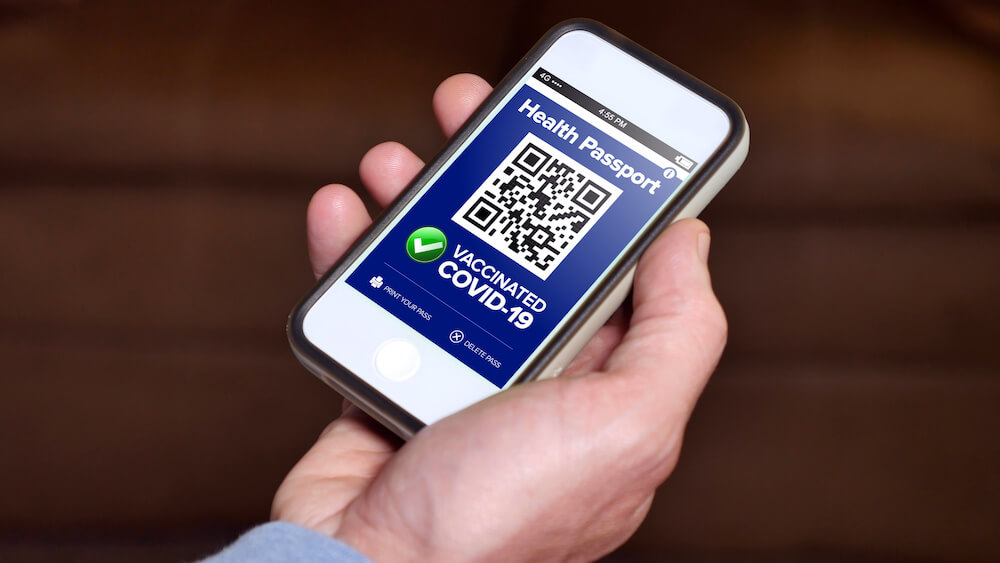
According to the latest COVID-19 Recovery Dashboard survey, around 60 percent of planners intend to mandate vaccinations at in-person events.
The 242 planners and 140 suppliers who took our latest COVID-19 Recovery Dashboard Survey, Dec. 7-14, seem to be taking the latest variant somewhat in stride. With Omicron fresh on the scene at the time of the survey, respondents said they were in wait-and-see mode for their next in-person event — and were a more hopeful bunch than respondents who took the last Dashboard survey in September while navigating the Delta variant. Half of planners and 43 percent of suppliers said they were feeling hopeful in December, versus 33 percent and 34 percent, respectively, in September.
When we asked whether Omicron or a rise in COVID cases was prompting planners to change their event plans for next few months, only 7 percent said yes — 5 percent said they were canceling their in-person events and hosting them exclusively online and 2 percent said they were canceling without offering a digital version. This is significantly less than the 26 percent of planners who said in September that the Delta variant had caused them to cancel plans for their in-person events.
Nearly half in December said they were going ahead with their in-person and hybrid events. Three out of 10 planners said they were biding their time, closely monitoring the COVID situation in their host destination before making a decision. “We’re watching closely,” said one respondent. “Delaying contracts until the last possible moment, and pivoting to virtual about two months before the event if face to face doesn’t look advisable.”
That planner’s comment is somewhat out of step with the trend we see when comparing planners’ decision timeframes in the September and December surveys. Twenty-three percent in December said they were making go/no-go decisions within two months of their in-person or hybrid event date in contrast to 44 percent who were working under such a tight timeline in September.
As to where planners are focusing their reskilling efforts, 62 percent said they are working on designing live experiences in physical environments with more stringent hygiene standards; 56 percent are designing hybrid event experiences.
That focus on creating safe in-person experiences may also factor into another major change between the two surveys. Planners are far more inclined to require proof of vaccination for their in-person events — around 60 percent said they are mandating vaccinations compared to just 40 percent who said the same in September. Of those imposing a vaccine mandate, 30 percent said they also would require proof of a booster if appropriate.
Switching the tables, we asked planners and suppliers about their own plans to attend business event industry events in the coming months. Sixty-four percent of suppliers said yes; 19 percent said no; and 16 percent were unsure. Half of those who aren’t attending cited financial reasons such as reduced business travel budgets, but 23 percent said they remain concerned about the risk of COVID. And 32 percent said they could not justify their ROI for attending an in-person event.
Only one-third of planner respondents plan to attend business events in the next few months; 46 percent said no, and 21 percent are unsure. Planners were less impacted by travel budget constraints — 24 percent (vs. 50 percent of suppliers) said financial reasons prevented them from attending. Slightly more planners (27 percent) than suppliers said concerns about COVID would keep them from traveling, and around one quarter (vs. 32 percent of suppliers) said they couldn’t justify their ROI for attending an in-person event.
One supplier gave another reason for the inability to attend that speaks to yet another challenge the business events ecosystem faces: smaller staffs. “If I’m out of the office,” this supplier wrote, “there isn’t anyone to cover for me. We’re too short staffed at this time.” But another supplier’s reason — “We are busy with 2022 business and can’t take time off” — offered a more hopeful note.
Michelle Russell is editor in chief of Convene.
Please download a PDF of the full December Recovery Dashboard results by clicking the link below.
Previous Recovery Dashboard Results
Find all the past results on our Recovery Dashboard archive page.
